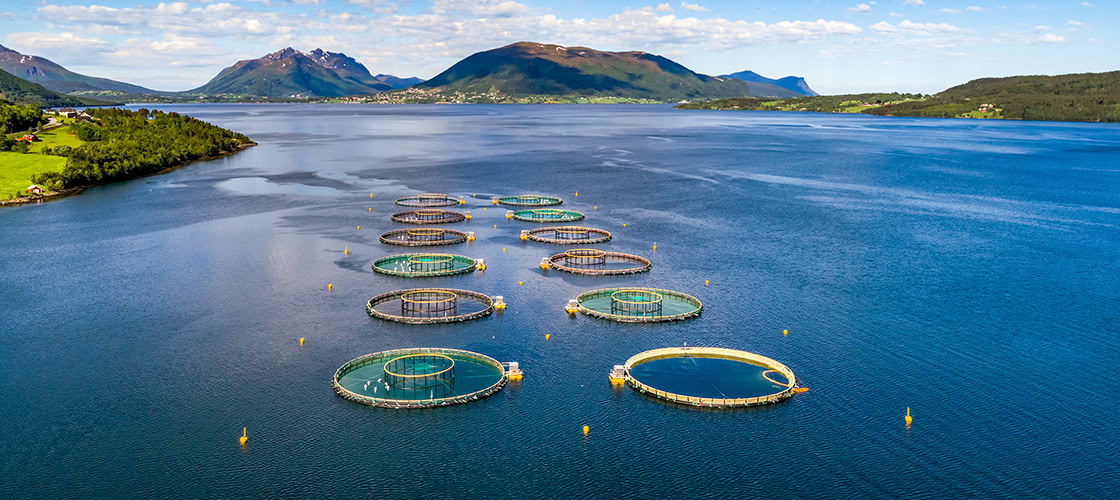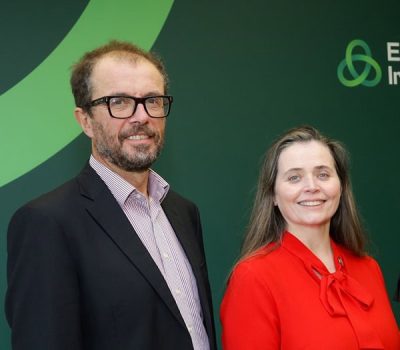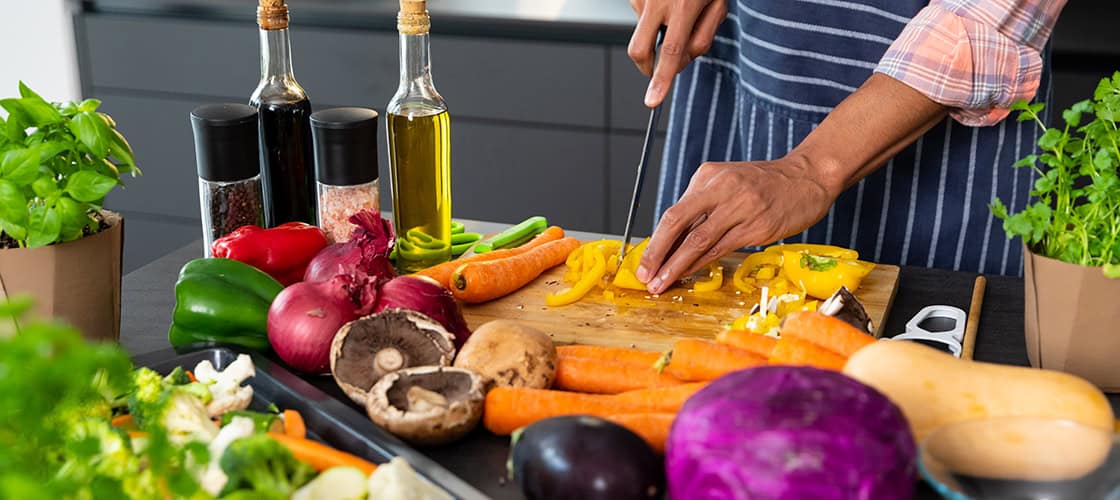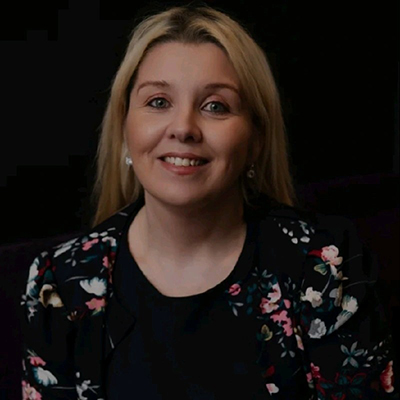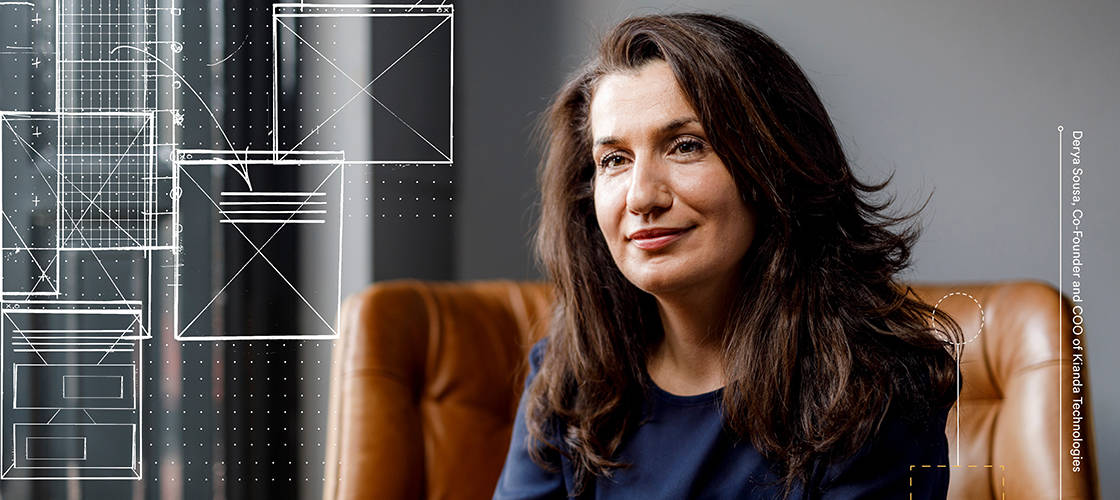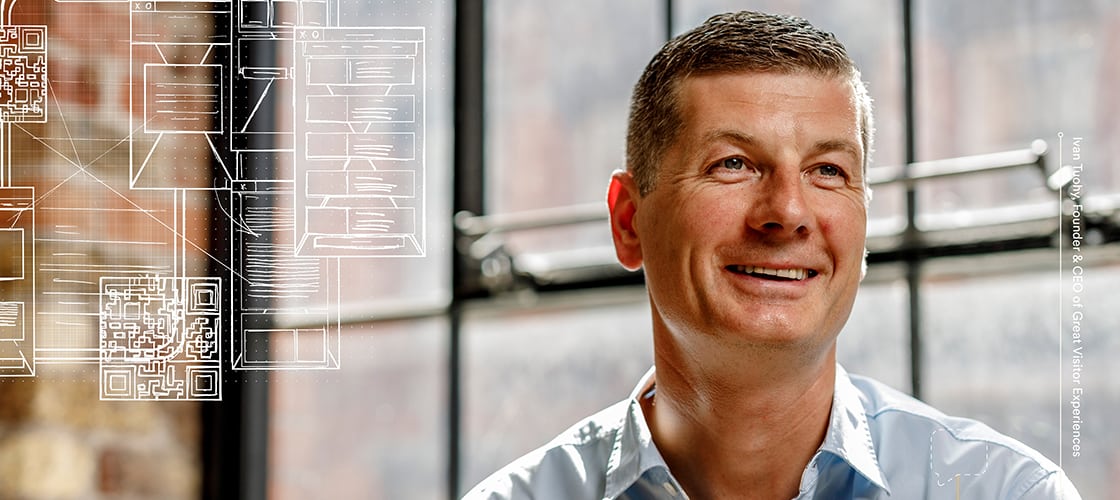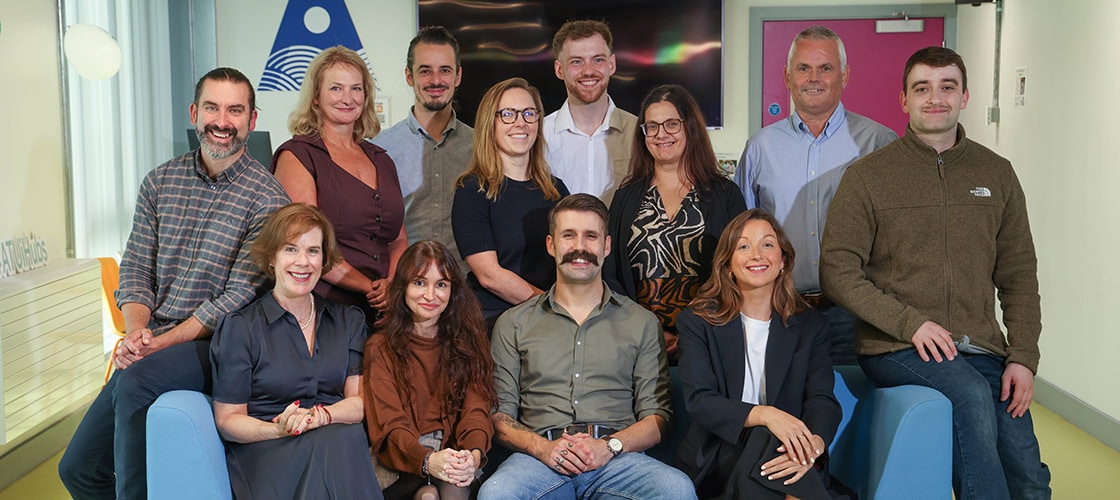

Michael Furey is a New Frontiers alumnus and the founder of Ronspot, a booking solution for enterprise-level companies. In just seven years, the company has grown from a bespoke tool created for a single customer to a global platform serving clients in 40 countries. We sat down with Michael to learn more.
How did the idea for Ronspot come about and how did New Frontiers help you develop that early idea?
I have a background in software and had previously started and sold a business. I started some other businesses subsequently and was also doing some technical consulting work. The business I had going into New Frontiers – which was back in 2015 – was totally different, but the Programme Manager Tony O’Kelly always told us to be open to pivots and not wedded to our business idea. The programme helps you understand the mechanics of running a company, however what I found most helpful was the high focus on research.
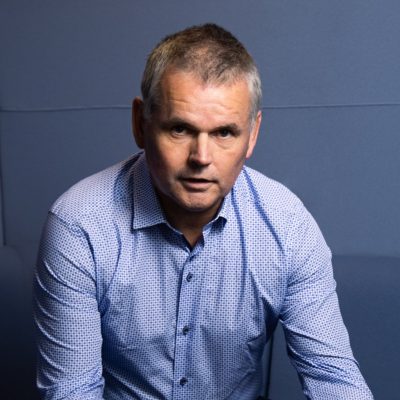
Michael Furey, founder of Ronspot
I left the New Frontiers still with the same software idea in mind. A little later I was approached by a pharma company I was consulting with to come up with a solution for their employee parking. They had 300 employees and a 50-space carpark plus overspill parking somewhere else. Their spreadsheet solution wasn’t working for them, and they had a very clear idea about what they wanted instead.
I took that brief and was able to develop and deliver the solution very quickly. That was in 2018, and we went from there. New Frontiers had taught me that things change and that is where the opportunities are. The feedback for Ronspot was very positive. Even with the years invested in my previous ideas, I was more open to leaving them behind and focusing on this business instead.
You subsequently raised funding and expanded the platform. What was the impact on the business?
Covid changed everything. Carparks were empty and despite some annual contracts we had in place there was the real question of whether we still had a business there. I believed there was an opportunity to expand into areas like hot desking and meeting rooms to support hybrid working. We had been bootstrapping to that point, but this was something that would take investment. I looked for angel investment through HBAN and was able to quickly put funding together. We have done two seed rounds to date totalling €1.7 million, both through HBAN and with backing from Enterprise Ireland.
On New Frontiers, you talk a lot about fundraising and whether you will bootstrap and grow organically or raise funding. I initially thought I would never want to give up part of the business to grow. Today, I see it very differently. If you’re at that early stage in a new market that’s hungry for what you’ve built, you could grow organically. However, we wouldn’t be where we are today without the funding we raised.
It made all the difference because we went from subsisting to being able to plan with confidence. Even though we are doing well and growing, I imagine we will go for funding again. Every time you earn, you spend more (the market is shifting, the competition is evolving, or some other event that requires your focus); being able to raise money so that you can plan the next two to three years is very important. Without the funding I believe we would still be here, but we would be a small team of a few people serving a tiny market.
So where is Ronspot today and how are you evolving?
Today, we have a team of around 15 in Ireland and 30 in India. We have 450 customers around the world – a large proportion are in Ireland, the UK, and Europe but we also have clients in North and South America and the Far East. They are organisations like American Express, Novartis, and the Central Bank of Ireland. The business is a success, but we still think hard about what problem we are solving, whether we are still solving the problem we were solving before, and what problems we’ll need to solve in two years’ time.
I often refer back to my experience on New Frontiers and how we learned to be ready to change, to pivot, to evolve if necessary. To keep a business running there’s a requirement to constantly think about what can change. You have to be a bit clairvoyant. Take us as an example: the explosion in hybrid working was a great opportunity, but it also meant there was an explosion in competitor solutions. At one point we were simply a booking solution, and now Ronspot is evolving into a whole workplace management platform.
What advice would you give other founders looking to build a successful and sustainable startup?
The most important thing you can do for your startup is your research. We all love our product, and we get very focused on what we’re building. However, the focus should really be on What is the problem? What is the market? What is the competitive landscape? Tony O’Kelly used to tell us to keep five things in mind: product, market, solution, team, and business model. Those five pillars are absolutely crucial to a successful business. It’s difficult for someone who wants to dive in and make something and start selling it. You may develop something great, but the question remains will people pay for it? Research before you start anything.
Also, you need to be an opportunist to some degree. Keep your finger on the pulse and understand the way the world is going. When we first built our solution, carparks were full every day. Then Covid came and being quick to react proved to be super important because sometimes opportunity just arrives, and you have to be ready to go for it. Which is why going for funding was one of my best decisions. If you have cash available, it’s much easier to make quick decisions that will hopefully benefit the business.
You hear a lot of criticism of state agencies but our experiences with them (we’ve been supported by the likes of HBAN, Furthr, and Enterprise Ireland) have always been very good. They really work hard for you. So, I’d advise other founders to take the help that is out there. I found the New Frontiers programme fantastic, particularly how the facilitators challenge you, how they change your mindset. Even with the experience I already had, I learned so much.
About Ronspot
Ronspot is a leading workplace management platform that gives workplace leaders the data and tools to make confident decisions about their office. The platform streamlines hybrid operations- desk, meeting room, and parking management while delivering real-time insights that drive smarter space planning. Know exactly how your workplace is being used, eliminate wasted costs, and design an office that employees actually want to work in. Trusted by global enterprises and ISO 27001-certified, Ronspot transforms workplace complexity into clarity, efficiency, and exceptional employee experiences.
Learn more about the business at ronspotflexwork.com.
About the author
 Scarlet Bierman
Scarlet Bierman
Scarlet Bierman is a content consultant, commissioned by Enterprise Ireland to fulfil the role of Editor of the New Frontiers website. She is an expert in designing and executing ethical marketing strategies and passionate about helping businesses to develop a quality online presence.
Recent articles
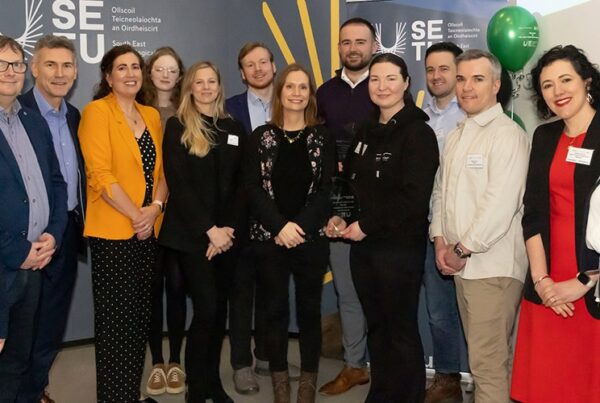
Founders Graduate From New Frontiers At South East Technological University – Carlow Campus
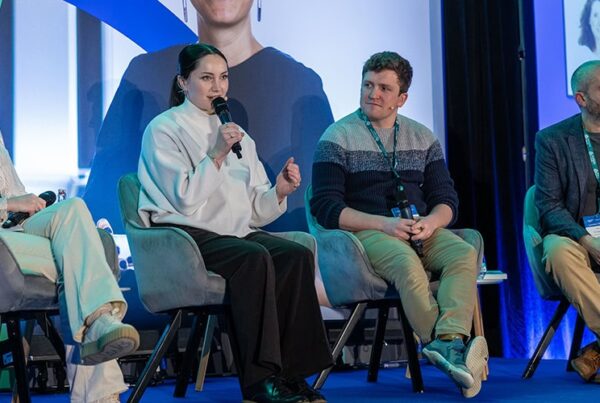
The New Frontiers Programme Connects 158 Founders With Success Stories

Raise Your Startup’s Visibility & Credibility By Entering These Competitions
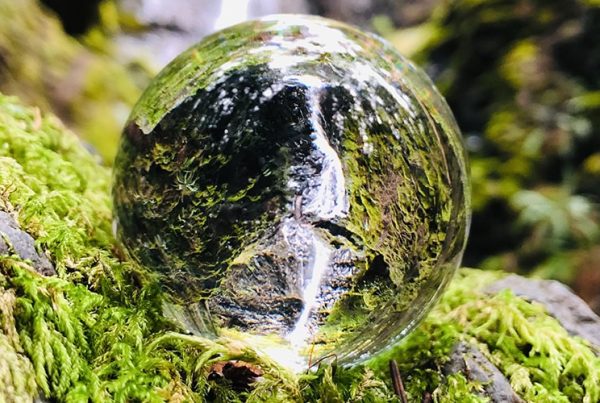
Founder Perspectives: Lessons From Building Businesses In Sustainability

Tech Startups In The Age Of AI: Alumnus Paul Savage On Speed, Quality & Risk
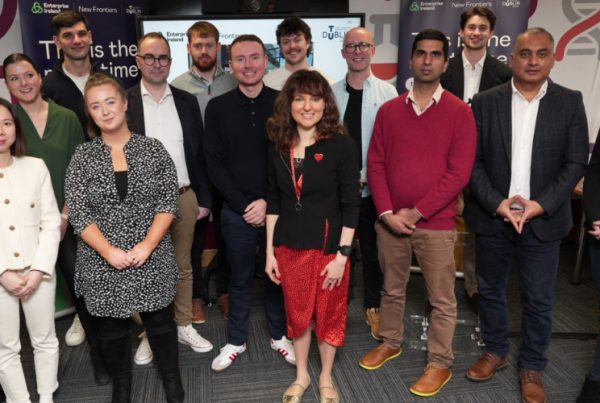
Fourteen Startup Founders Graduate From Phase 2 Of New Frontiers In Tallaght
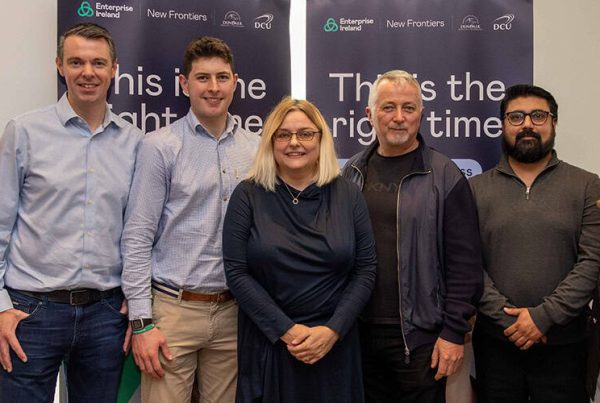
Eleven Founders Graduate From New Frontiers In The Border Mid-East Region
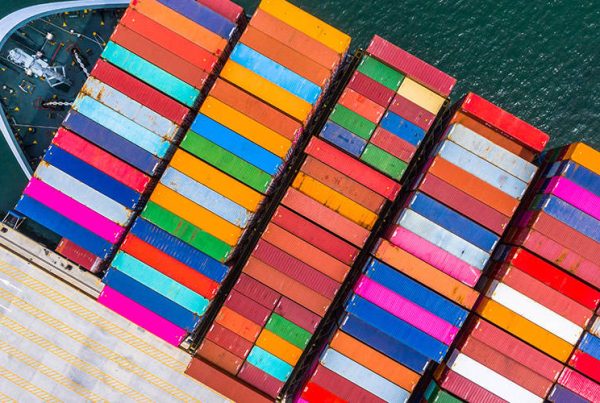
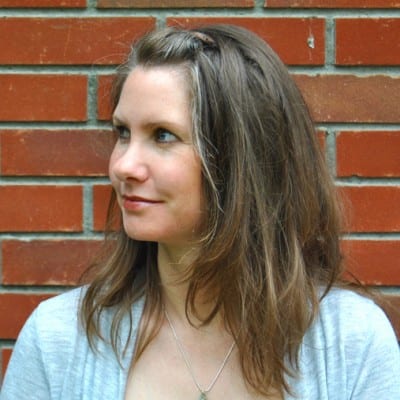 Scarlet Bierman
Scarlet Bierman